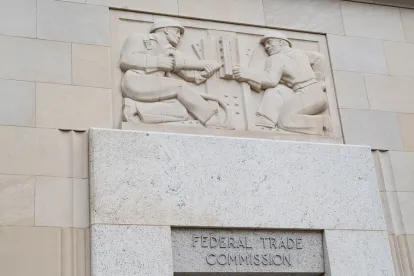The Federal Trade Commission consistently seeks to expand the scope of potential liability for deceptive advertising practices. From substantial assistance liability under the FTC’s Telemarketing Sales Rule to theories of agency or vicarious liability, ad agencies, ad networks, lead buyers and aggregators, lead purchasers, merchants and payment processors are all potentially accountable for facilitating the actions or omissions of those that they do business with.
Consider the latter and the FTC’s recent assault on the payment processing industry. It amply highlights third party accountability remedial theories and the imposition of reasonable monitoring duties.
In January 2020, the FTC announced that an overseas payment processor and its former CEO settled allegations that they enabled a deceptive “free trial” offer scheme. According to the complaint, the company, its principals and related entities marketed supposed “free trial” offers for personal care products and dietary supplements online, but instead billed consumers the full price of the products and enrolled them in negative option continuity plans without their consent.
To further the scheme, the defendants allegedly used dozens of shell companies and straw owners in the United States and the United Kingdom to obtain and maintain the merchant accounts needed to accept consumers’ credit and debit card payments, an illegal practice known as “credit card laundering.”
The FTC subsequently filed an amended complaint adding a Latvian financial institution and its former CEO to the case, alleging that they illegally maintained merchant accounts for the other defendants in the name of shell companies and enabled them to evade credit card chargeback monitoring programs.
In a press release, FTC attorney Andrew Smith, Director of the Bureau of Consumer Protection, stated that “[t]he FTC will continue to aggressively pursue payment processors that are complicit in illegal conduct, whether they operate at home or abroad.”
The FTC also recently announced that a payment processor for an alleged business coaching scheme settled charges that it ignored warning signs its client was operating an unlawful business coaching and investment scheme. Here, according to the FTC’s complaint, the company for years processed payments for a purported scheme that charged consumers hundreds of millions of dollars for allegedly worthless business coaching products, and that the company ignored numerous signs that the business was allegedly fraudulent.
The red flags listed in the complaint include questions about whether the company was a domestic or international company, the nature of its business model, the company’s purported history of excessive chargebacks, and claims the company allegedly made in its marketing materials.
Notably, the complaint also alleged that the company failed to follow its own internal policies and failed to review its clients' business practices in detail, which, according to the FTC, would have revealed numerous elements that should have eliminated the client under those policies.
According to the FTC, even after the company took on the client, the client’s processing data immediately raised red flags related to the quantity of charges it processed and the number of refunds and chargebacks associated with those charges. When the client experienced excessive chargeback rates, instead of adequately investigating the causes of the chargebacks, the company responded by requiring the client to work closely with chargeback prevention companies, according to the FTC. The FTC alleged that the company failed to monitor the products its client was selling and the claims it was making to sell those products.
Again, the Director of the FTC’s BCP conveyed that “[i]gnoring clear signs that your biggest customer is a bogus online business opportunity is no way to operate a payment processing business.” “And, it’s a sure-fire way to get the attention of the FTC,” Smith stated.
Most recently, the FTC announced that a payment processor that allegedly helped perpetuate multiple scams has been banned under the terms of a settlement with the agency and the State of Ohio. Here, the FTC alleged that the defendants used remotely created payment orders and remotely created checks to facilitate payments for unscrupulous merchants, allowing them to draw money from consumer victims’ bank accounts.
Reaffirming the FTC’s focus on the payment processing industry, FTC lawyer Andrew Smith stated that “[p]ayment processors who help scammers steal people’s money are a scourge on the financial system.” “When we find fraud, we are committed to rooting out payment processors and other companies who actively facilitate and support these fraudulent schemes,” Smith stated.
The FTC is aggressively policing payment processors that bury their heads in the sand or go a step further and help cover up their clients’ wrongdoing. Either course of conduct could land them in legal hot water.
The settlement terms of the matters above include permanent bans, hefty monetary judgments and the surrender of assets.




 />i
/>i

